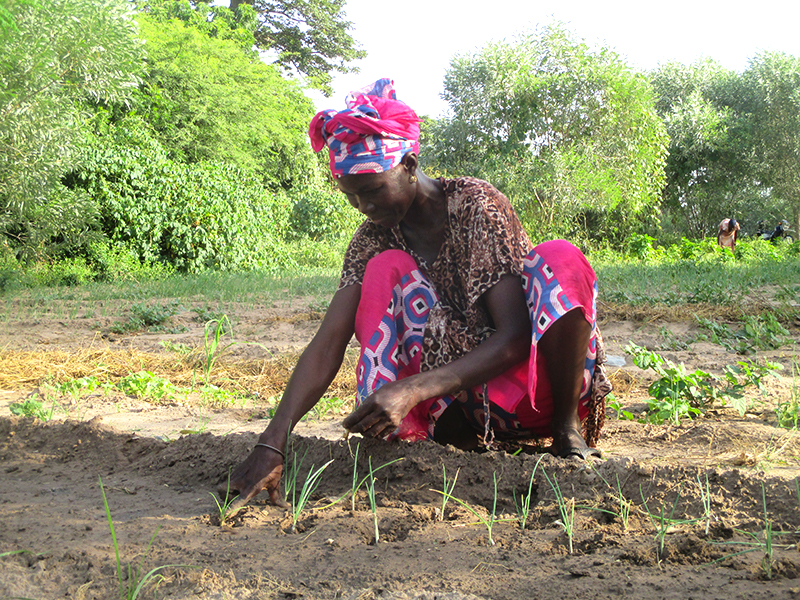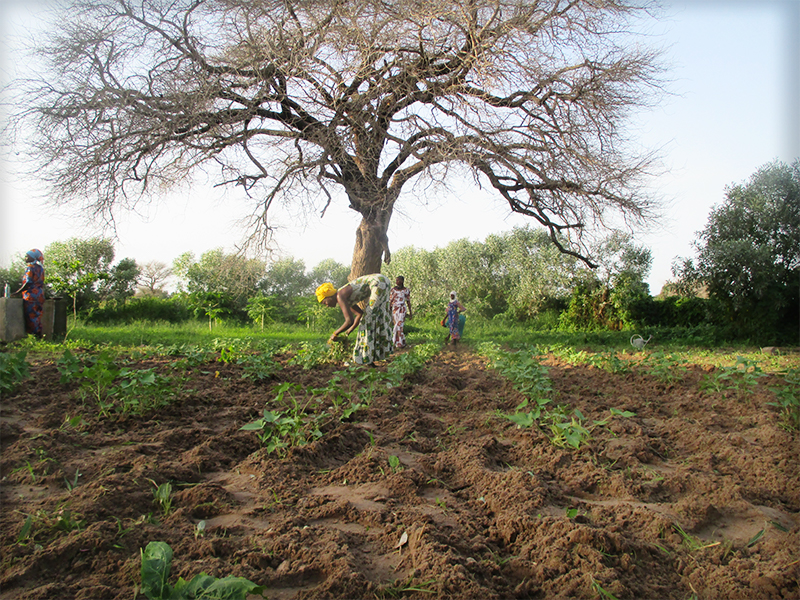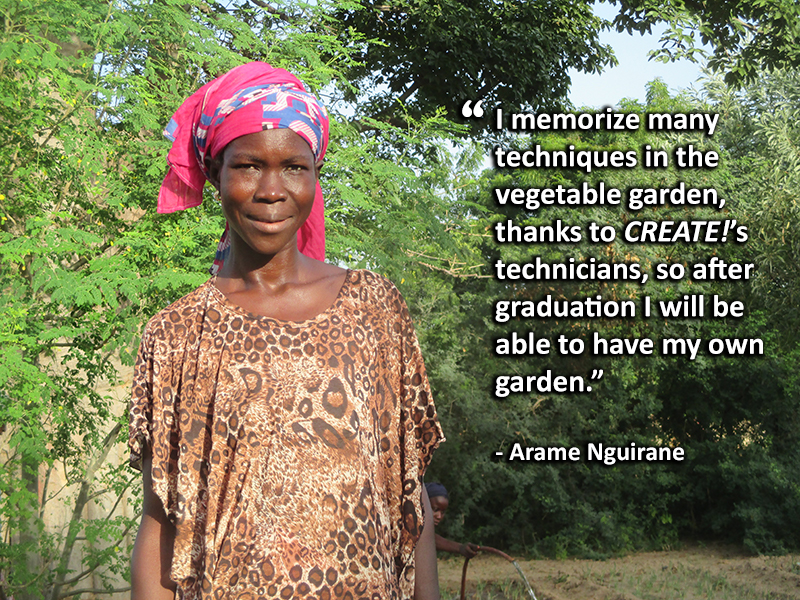There is not a cloud in sight. Blue sky stretches from horizon to horizon as the sun scorches the parched Earth. Daily temperatures are rising as Senegal enters its dry season. It will be another nine-months until the rains come again. Rural communities often depend on agriculture to support their families and make a living. They also depend on the rain to irrigate crops. Unfortunately, these rural communities are faced with an imminent problem as their water supply runs out during the dry season. However, the community garden in the village of Walo continues to thrive throughout these hot and dry months. Walo has taken on the successful project of dry season gardening.
Walo’s Cooperative Garden President
Meet Arame Nguirane, the Cooperative Garden president in the village of Walo. Arame leads the men and women of her community in a successful effort to sustain a year-round garden site. As well overseeing community garden projects, Arame also supports a family of six. Arame’s family can depend on her to bring home fresh vegetables daily. She proudly tells us, “The availability of vegetables has improved my family’s diet because they eat vegetables every day.”
Before Walo partnered with CREATE!, the village did not have any year-round gardens. Arame describes how she would occasionally travel outside her community to the Kaoloack and Guinguineo markets to buy vegetables. This means that when Arame didn’t travel, her family couldn’t eat vegetables. “Vegetables were expensive because sellers came from very far, [but] now we have easy access to vegetables,” Arame says.

Arame works in Walo’s garden site every day. Today she is transplanting green onions.
Accessing Water During the Dry Season
Arame and her community have the possibility to produce vegetables during the dry season because of the solar-powered water pumping system that was installed by CREATE!’s technicians. When CREATE! partnered with Walo, the first project was to rehabilitate the well and install a solar-powered pump. Clean water is pumped from a 150-foot well to an above-ground reservoir and basin. This water is used for households and gardens in the village. “My children and I drink the well water, I get 20 liters per day,” Arame tells us. She adds, “We also have the possibility to grow vegetables.”
But the possibility requires effort. Arame and the community have been dedicated to learning and utilizing sustainable agriculture techniques that CREATE!’s field technicians teach them. “I memorize many techniques in the vegetable garden thanks to CREATE!’s technicians,” Arame says. Their engagement and hard work have been paying off. “Now [that] vegetables are always available in the village, we have the opportunity to eat and sell the excess to the market,” She tells us. Arame is not only providing food for her family but she is also generating a reliable income now. Many other women in her community are also generating income for their families by selling the harvest. Because the women are generating income, CREATE! helped the community form a Voluntary Savings and Lending (VSLA) group.

Many women in the village of Walo generate income for their families by selling extra produce in the markets.
Generating Income from the Community Garden
The VSLA group is run by women in the community to help other women save money and provide small loans. Arame said that she was saving her money in a bank before the VSLA group was formed. “The difference between the two savings is before the interest I paid went to the bank, and with the VSLA the interest comes back to us,” She says. Loans from the VSLA group still require interest. However, the interest goes back into the VSLA fund. This increases the value of each member’s share.
The VSLA group encourages collaboration and cooperation from its members. Arame recalls that for the Tabaski holiday, the women decided to share their savings with the other members. This way, everyone could have an abundant celebration with their families. Tabaski is one of the most popular holidays in Senegal and is celebrated across the country. Families come together and often buy a goat to sacrifice and share.
It is truly wonderful to see the support and encouragement that community members give to each other while working towards the self-sufficiency of their village. Arame’s ambition to learn, lead, and support her family as well as her community will take her village far. We could not be prouder of the leadership that we’ve seen across our partner communities!

